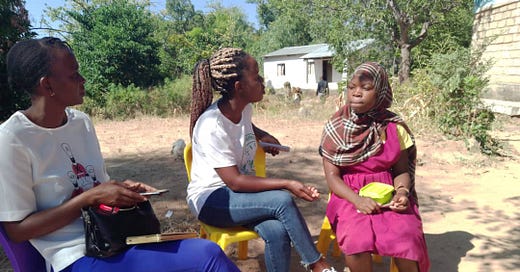Teen Pregnancies, Child Marriages Hinder Girls' Education in Malawi
Recently, Malawi's Deputy Minister of Health disclosed that cases of teenage pregnancies stand at 29% and urged stakeholders to examine potential factors influencing such incidents across the country.
MZUZU, Malawi-- Child marriages and teenage pregnancies continue to impede efforts to promote girls' education in Malawi, despite ongoing initiatives to empower young women, interviews with youth organizations and individuals reveal, writes Rose Cross, MANA.
"When I got pregnant, I lived in regret and couldn't go back home to my mother who is a single parent; as such I had to get married," said Salomy Jere, a young bride who became pregnant at 17 while in her first year of college.
"I didn't plan on getting pregnant but doing sex for fun made it happen."
Jere, who now holds a diploma in business management, believes increased access to sexual and reproductive health rights (SRHR) education and services could help prevent such situations.
Chimwemwe Banda, executive director of Citizen Impact Organisation, agreed, noting that many parents and guardians fail to discuss sexual relationships with their daughters, leaving them with incomplete or inaccurate information from peers.
"The issue of child marriages is directly connected to early pregnancies because most girls who enter into early marriage are forced into it after falling pregnant," Banda said.
Lucy Msukwa, founder and director of the reproductive health facility Uchembere Wabwino in Mzuzu, said her organization treats a minimum of three cases related to teen pregnancies each week.
To address the issue, they introduced "Uchembere Youth for Change," a program that engages secondary school students on SRHR topics and entrepreneurial skills.
"Aside intensifying health education provision to the youths, there is also need to create more flexible health care tools and procedures so that health facilities and workers are accommodative to youths," Msukwa said.
Judith Chibambo, executive director of Judith Foundation, which offers education bursaries to secondary school girls in Mzimba North District, emphasized the importance of formal education in empowering girls and breaking the cycle of poverty.
"A girl who does not know her rights will continuously be a victim of abuse including being sent into early marriage," Chibambo said.
Misheck Mahera Msokwa, the district youth officer for Mzimba North and Mzuzu City, said his office is scaling up civic education activities to provide young girls with information on the dangers of early sexual activity.
Recently, Malawi's Deputy Minister of Health, Halima Daud, disclosed that cases of teenage pregnancies stand at 29% and urged stakeholders to examine potential factors influencing such incidents across the country.
Daud made the remarks during the launch of a faith-based approach to SRHR in Machinga District.



